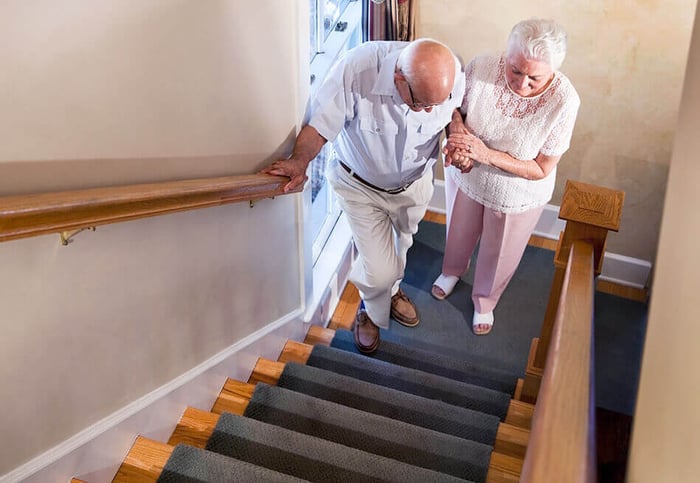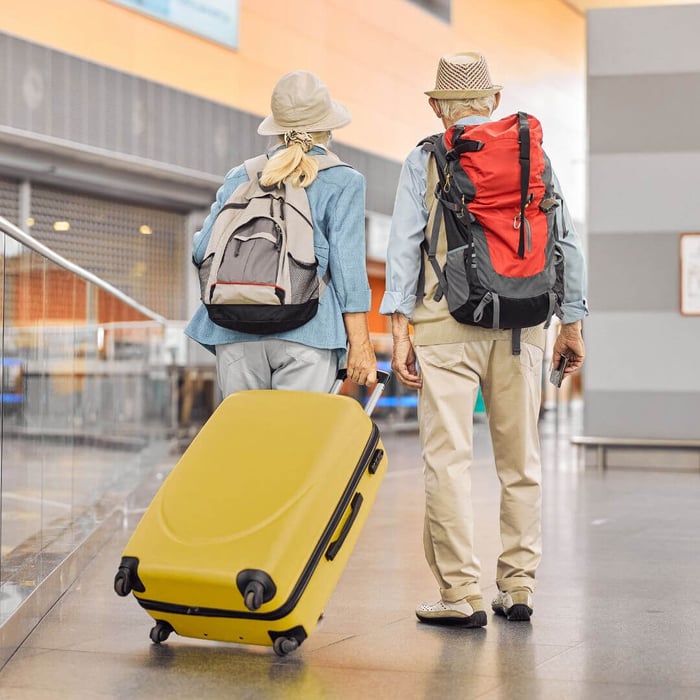The use of medications becomes increasingly common to manage various health conditions as people get older. Furthermore, advancements in medical research have led to a plethora of medications and assistive devices being available to support the well-being of the elderly.
These more complex regimens pose a serious challenge to caregivers in managing medication and care supplies.
According to a report published by the National Center for Biotechnology Information, more than one-third of older adults (aged 65 and above) take 5 or more prescription medications at any one time. Including over-the-counter medications, dietary supplements and senior care supplies, this figure may be even higher.
Caregivers must have an understanding of their patient's medication requirements, including dosages, schedules, and potential interactions, to ensure optimal effectiveness and minimize risks. By implementing effective procedures to manage a patient’s medications and care supplies a caregiver not only safeguards the patient’s well-being and contributes to their overall quality of life; they also make everything considerably easier for themselves.Top of Form
Organizing Medications
Keeping track of medications can be overwhelming, especially when there are multiple medications to manage. To stay organized, caregivers should consider implementing the following strategies:
Make a comprehensive list of all medications, including the dosage, frequency, and time of day they should be taken. Keep this list in a prominent place in the home, such as on the refrigerator or near the medication storage area, and update it regularly as medications change.
Pillboxes can be a helpful tool for managing medication. Consider using a pillbox with separate compartments for each day of the week. Fill the pillbox with the appropriate medications for each day, making it easy to see if any doses have been missed or taken incorrectly.
Use a calendar or smartphone app to set reminders for medication times. This can be especially helpful if medications need to be taken at different times throughout the day. Reminders can also be beneficial for caregivers who are responsible for reminding the individual to take their medications.
Storing Medications
Proper storage of medications is crucial to ensure that they remain effective and safe to use. Follow these guidelines for storing medications safely:
Medications should be stored in a cool, dry place, away from moisture and heat. Avoid storing them in the bathroom or near the kitchen sink, as the humidity and temperature fluctuations in these areas can affect the medication's potency.
Medications should be stored in a locked cabinet or other secure location, out of reach of children and pets. Ensure that the storage area is not easily accessible to avoid accidental ingestion.
Regularly check the expiration dates on each medication, and dispose of any expired medications properly. Expired medications may lose their effectiveness or even become harmful, so it's essential to remove them from the medication supply.
Administering Medications
Administering medications can be a complex task, especially if the individual receiving the medication has difficulty swallowing or has a complex medication regimen. To administer medications safely and effectively, caregivers should:
Follow the medication list carefully, ensuring that each medication is administered at the correct time and in the correct dose. If there are any concerns or questions about the medication regimen, consult with a healthcare provider for clarification.
Medications can sometimes interact with one another, causing adverse effects or reducing their effectiveness. Caregivers should be aware of potential interactions and consult with a healthcare provider if there are any concerns.
Each medication may have specific instructions for administration. Some medications may need to be crushed or dissolved in liquid before administration, while others may require specific techniques or equipment. It's important to follow the proper administration method to ensure the medication is taken correctly.
Caregivers should familiarize themselves with the potential side effects of each medication. If any unusual symptoms or side effects are observed, it's crucial to report them to a healthcare provider promptly. Regular communication with the healthcare team can help address concerns and make necessary adjustments to the medication regimen.
Managing Care Supplies
In addition to medications, caregivers may also need to manage a variety of care supplies, such as incontinence products, wound care supplies, and assistive devices. To effectively manage care supplies, consider the following strategies:
Make a list of all necessary supplies, including quantities and specific product details. Keep this list in a prominent place in the home, and update it regularly as supplies are used. This list can serve as a handy reference when ordering or restocking supplies.
To ensure that there is always an adequate supply on hand, order care supplies in advance. Many suppliers offer automatic delivery options, which can streamline the process and help prevent running out of essential items.
Care supplies should be stored in a cool, dry place, away from moisture and heat. Incontinence products and wound care supplies should be kept in their original packaging until they are ready to be used. Proper storage helps maintain the quality and effectiveness of these items.
For help and advice with care supplies and over-the-counter medications, contact the team at LL Medico. We have more than 25 years of experience in this field. Between 9 am and 5 pm EST, you can call us at (855) 422-4556 or chat live with one of our consultants. Alternatively, email us at support@llmedico.com.
Handling Medical Emergencies
Despite the best efforts of caregivers to manage medications and care supplies, emergencies can still occur. Caregivers should be prepared to handle medical emergencies by considering the following:
Keep a list of emergency contacts in a prominent place in the home, and carry a copy with you at all times. Include contact information for healthcare providers, emergency services, and family members who should be notified in case of an emergency.
Consider taking a first aid or CPR course to learn how to respond to medical emergencies. These courses can provide valuable skills and knowledge in managing emergency situations. Keep a well-stocked first aid kit in a prominent place in the home and familiarize yourself with its contents and usage.
Create a plan for handling medical emergencies, including transportation to the hospital and notifying family members or other caregivers. Having a plan in place can help caregivers respond more effectively and efficiently during high-stress situations. For more information on coping with emergencies, read this blog.
Managing medication and care supplies is an important responsibility for caregivers. By staying organized, properly storing medications and supplies, administering medications safely and effectively, and being prepared for emergencies, caregivers can provide the best possible care for their loved ones. Remember to consult with healthcare providers and seek professional advice when needed, and always prioritize the health and well-being of the individual in your care.







 855-422-4556
855-422-4556 Chat
Chat E-Mail
E-Mail Monday - Friday 9:00AM to 5:00PM EST
Monday - Friday 9:00AM to 5:00PM EST





 Shopping With LL Medico
Shopping With LL Medico
 855-422-4556
855-422-4556